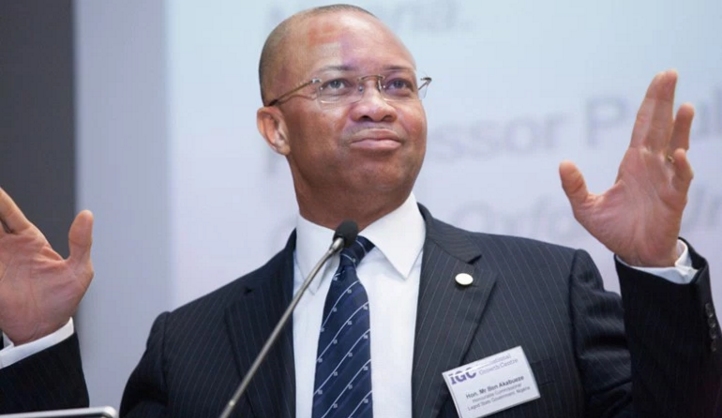News
2017 Budget to be signed soon – Ben Akabueze
The Director-General Budget Office, Mr. Ben Akabueze, says he is optimistic that the 2017 budget will soon be signed.
He said this on Tuesday in Abuja at a roundtable organised by Time Economics on issues concerning the Nigerian economy.
Akabueze said that to address issues of delayed budget passing and implementation, the Federal Government had plans to ensure that from 2018, the nation returns to a predictable financial year.
He said that the government had presented a draft for an Organic Budget Law to the National Assembly, which when passed, would ensure punctual drafting and approval of subsequent proposed budgets within a stipulated time.
On capital expenditure, he said that up till 2015, in spite of oil price boom, the Federal Government spent under 10 per cent of its budget on infrastructure.
He said that in 2016, government put in place a policy which prescribed that a minimum of 30 per cent of its annual budget be spent on capital expenditure.
“Unfortunately we have not quite been able to get there but the good thing now is that we have a policy and there is a concerted effort to move in that direction.
“For the 2016 budget, there is aggregate spending on capital of N1.1 trillion, for that same period we have planned to spend N1.8 trillion on capital expenditure but spent what we did because revenues were short.’’
He, however, said that because debt service and personnel cost which also costs much had to be paid, capital spending tends to take the brunt when there was revenue shortfall.
Akabueze said that personnel cost was also important because when people retire, they have to be replaced, especially in classified sectors like healthcare and education, but had to be done through due process.
“Recently, the president constituted a committee which I am a member of, to review all recruitments made in the last two years.
“I am sure that there would be consequences for people who may have recruited without following due process.
“That process includes getting a sign off from the budget office that there is adequate budgetary provision to be able to pay the people that you are recruiting,’’ he said.
Mr Uche Orji, the Managing Director, Nigeria Sovereign Investment Agency (NSIA), said that in spite of the recession, the Federal Government ensured that it saved money through the Sovereign Wealth Fund (SWF).
“The government even in recession sees a need to accumulate capital in the SWF, and I think that is something commendable and if that pattern subsists, there is reason to be very optimistic.’’
He said that the agency made investments for the nation in 17 different currencies, with both short and long instruments and that most of the investments were made in private equity.
Orji said that 93 per cent of investments in 2016 were made outside the country in buying healthcare royalties, companies making investments in patents which were sold to drug companies which buy the royalty strips.
He also said that investments were made in the public market too, adding that 2016 was a good investment year for the market.
“We will see a shift this year to internal investments in infrastructure and assets management in areas that may not necessarily show returns immediately, the NSIA has never lost money and that is not going to change.’’
Orji said that the agency was now focusing on internal investments by supporting private equity companies in the country to get to the point of capital accumulation.
On synergy with pension funds, he said that to create infrastructure and ensure that things were done in a sustainable manner, the bond market had to be created.
He said that an infrastructure bond market was essential, but does not necessarily have to be created by the government only, but could be supported by the private sector through infrastructure bonds.
Also speaking, Mr Funso Doherty, the Director-General, National Pension Commission (PenCom), said that it was very important to understand that PenCom’s most important responsibility was social and not financial returns, so people could have their pensions when due.
Represented by Dr Aminu Farouk, he said that it was also essential for PenCom to go beyond collecting monthly contributions, but also invest people’s money to give it value.
He said that by the end of the first quarter of 2017, about 73 per cent of pension assets had been invested in government securities.
According to him, government presently does not have enough to fund infrastructure, so private entities have to help the government fund it.
He also said that there was the need for coordination of all government activities and consistency in its policies.
“Coordination and consistency are very important because it is when you are consistent with your policies that people from outside can predict what will happen in the near and far future and then they will come.
“I feel that unless we are able to entrench this in our society, we cannot achieve anything.’’
Dr Ogho Okiti, the Chief Executive Officer, Time Economics, said that for government to achieve economic growth and stability there was the need for it to achieve increase in revenue.
NAN

























